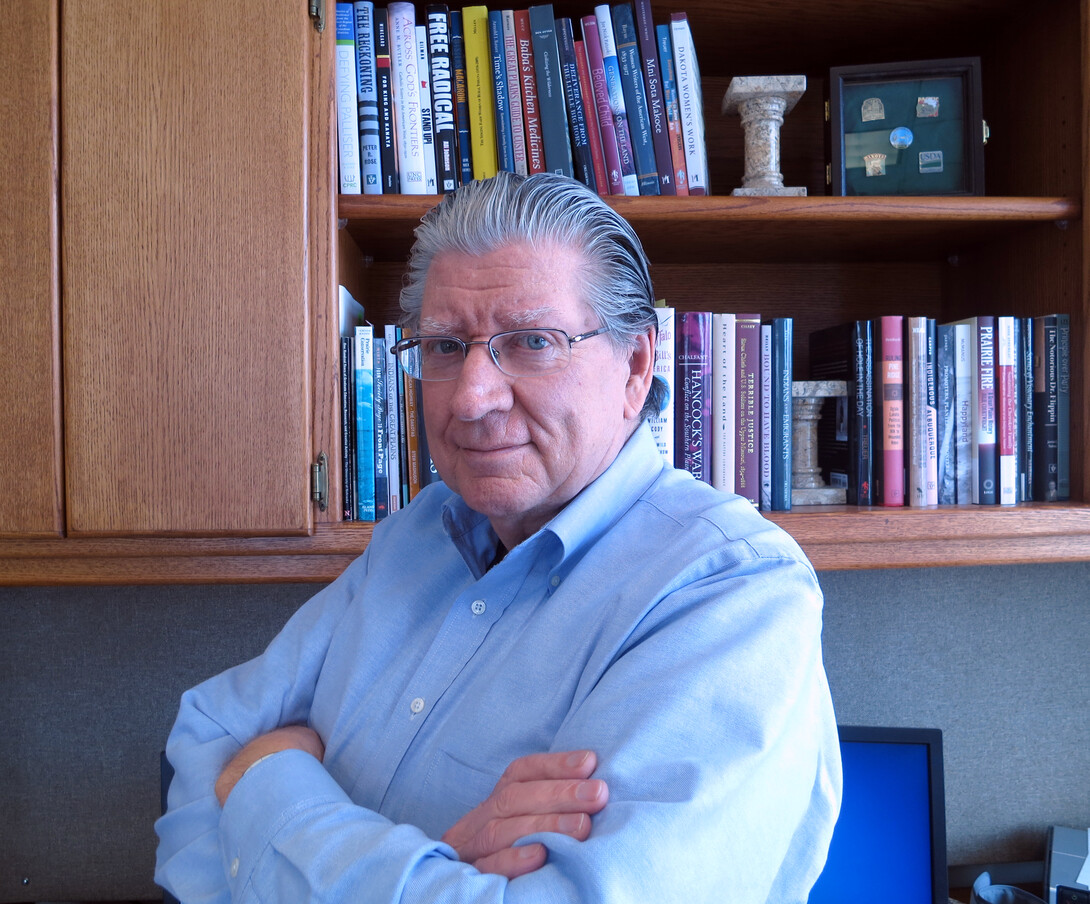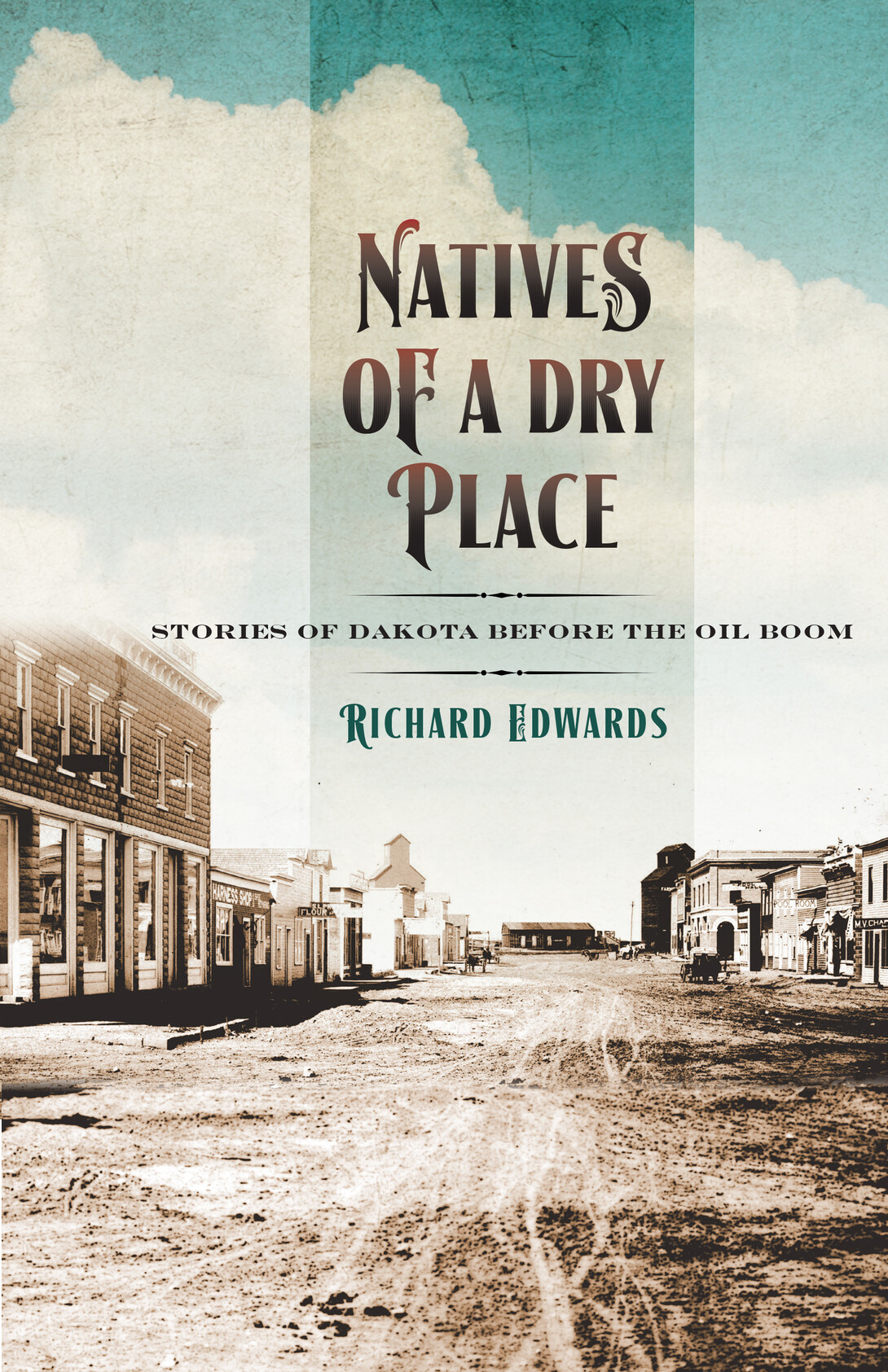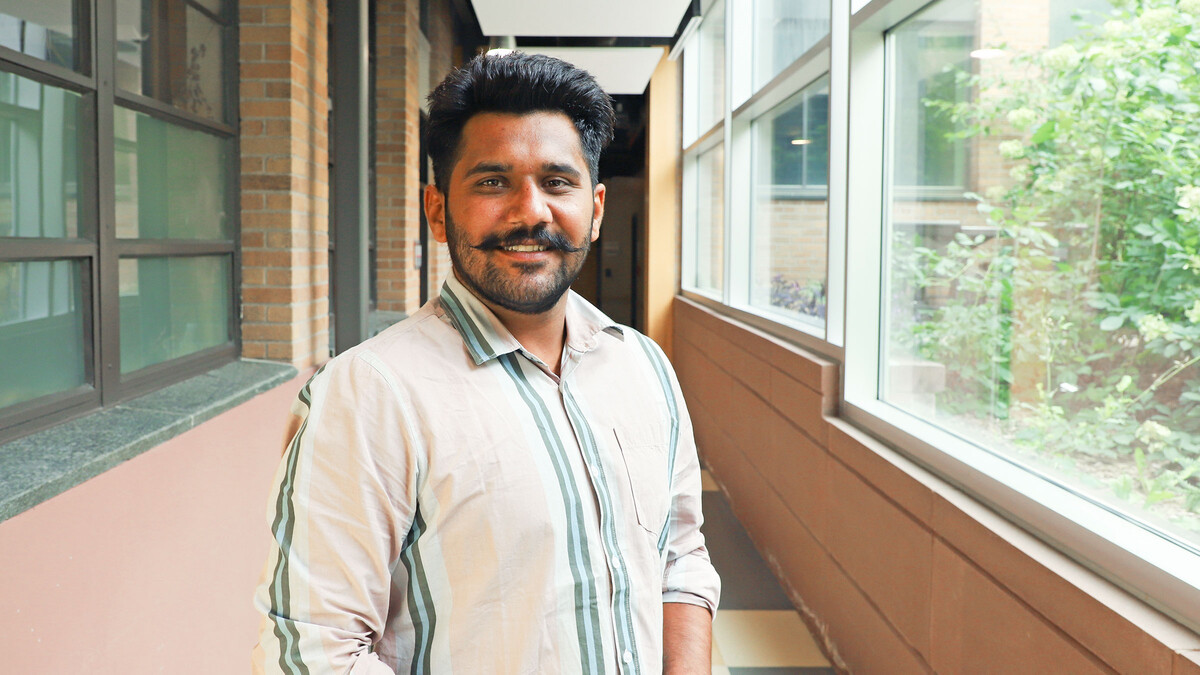
The recent oil boom in western North Dakota has focused the media spotlight on a place often passed by. Dakota before the oil boom was, like so much human settlement on the Great Plains, a place slowly eroding with time. But its earlier era of small-town life may still have much to teach people.
“Natives of a Dry Place: Stories of Dakota before the Oil Boom,” written by Richard Edwards and published by the South Dakota State Historical Society Press, focuses on people who lived in the little prairie town of Stanley, North Dakota.
The book, out Sept. 25, tells stories of ordinary folks who learned to get on with life despite the harsh climate of their homeland. They lived before wall-to-wall carpeting and central air conditioning, before paved roads and four-wheel-drive vehicles, before wheat combines had 40-foot grain heads and air-conditioned cabs, before television and the Internet. On occasion they showed extraordinary courage, love, purpose, pluck, humor and determination, and they developed a distinctive culture.
One story follows 21-year-old “Swede” Edwards as he descends 140 feet into a dry well, only 18-inches wide, to recover the crumpled body of Thomas Scrivner. Another tells of two young lovers, Irene and Arne, whose lives were devastated by their careless and disastrous early decisions; miraculously, 30 years later they were granted a “do-over.” Other stories profile two brothers – the town doctor and dentist – and the latter’s extraordinary wife, Stanley’s widely admired cultural impresario.
These people’s life stories and values are now fading from view, as is so much of small-town Great Plains culture. In Stanley’s case, it became collateral damage of the oil boom. In the face of great change to the region, it becomes even more important to remember these achievements of the past.
“As a child, I thought of my town – as most children probably do – as just an ordinary place. …,” Edwards said. “Yet I have come to think that there were exceptional things in the lives of its people and especially in the values and virtues they believed in and aspired to.”
Edwards is a professor of economics, director of the Center for Great Plains Studies and former senior vice chancellor for academic affairs at the University of Nebraska-Lincoln. Edwards received his doctorate from Harvard University. Before coming to UNL, he served as chair of the economics department at the University of Massachusetts-Amherst and dean of arts and sciences at the University of Kentucky.
In recent years, Edwards’ research has focused on the history of homesteading and on efforts to preserve Great Plains grasslands and biodiversity through ecotourism. The latter work seeks to create market incentives for private landowners to conserve as well as link habitat conservation to the economic prosperity in nearby human communities.
For more information on the book, visit http://www.nativesofadryplace.com.








